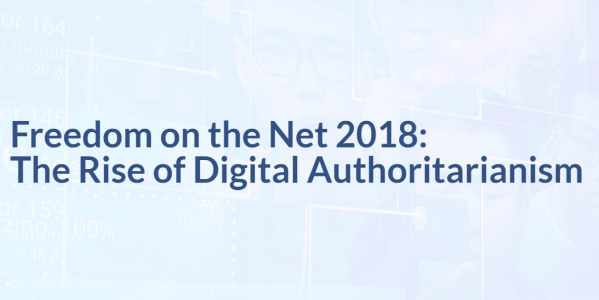Freedom on the Net 2018: The Rise of Digital Authoritarianism

Fake news, data collection, and the challenge to democracy
The internet is growing less free around the world, and democracy itself is withering under its influence.
Disinformation and propaganda disseminated online have poisoned the public sphere. The unbridled collection of personal data has broken down traditional notions of privacy. And a cohort of countries is moving toward digital authoritarianism by embracing the Chinese model of extensive censorship and automated surveillance systems. As a result of these trends, global internet freedom declined for the eighth consecutive year in 2018.
Of the 19 countries with overall score improvements, two—Armenia and the Gambia—earned upgrades in their internet freedom status.
Armenia rose from Partly Free to Free after citizens successfully used social media platforms, communication apps, and live-streaming services to bring about political change in the country’s Velvet Revolution in April.
The Gambia jumped from Not Free to Partly Free, as restrictions have eased and users have posted content more freely since longtime dictator Yahya Jammeh was forced from office in early 2017. However, many draconian laws enacted under the former regime are still in place. While Ethiopia remained highly repressive, a new prime minister appointed in April 2018 immediately moved to reduce tight internet restrictions and promised broader reforms. Prominent bloggers were released from prison, and citizens felt more free to speak out on social media and participate in their country’s potential transition from authoritarian rule.
For more details you can visit:
Leave a Reply